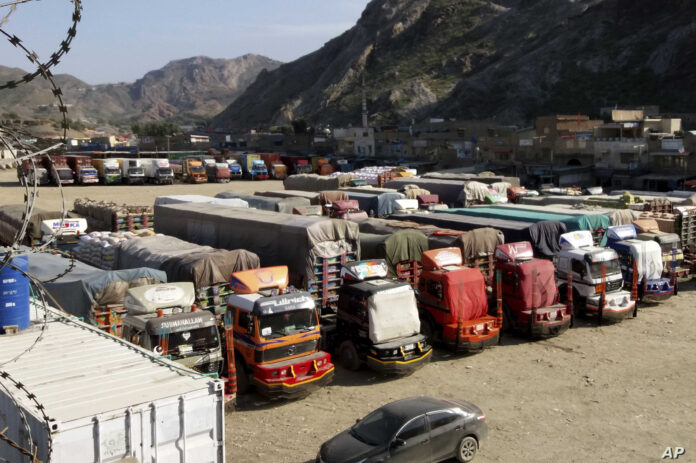The Federal Board of Revenue (FBR) has temporarily replaced satellite tracking of containers carrying imported goods to Afghanistan with human surveillance, sparking concerns over smuggling risks and efficiency gaps.
According to a news report, this shift follows the abrupt termination of the license of TPL Trakker, the company that had been monitoring container movements through GSM and satellite since 2013.
The task of monitoring has now been handed over to four firms, selected based on technical qualifications evaluated four years ago, without a competitive bidding process. However, these firms lack experience in container tracking and do not possess Container Surveillance Devices (CSDs), a critical tool for preventing pilferage.
In a written statement, FBR Director General for Transit Trade Mohsin Rafique confirmed the firms were chosen because they had been previously evaluated and deemed eligible.
However, Rafique admitted that these firms specialise in vehicle tracking, not container monitoring. “CSD is an expensive device which is not available with any company other than TPL,” he stated.
The new contractors have been authorised to install Prime Mover Devices (PMDs) on vehicles, which track vehicle movement but do not monitor containers directly.
Despite acknowledging these limitations, the FBR allowed the firms to set up control rooms at the Old Custom House in Karachi and commence tracking operations under new standard operating procedures (SOPs).
The new SOPs, issued on December 27, require additional human resources from Customs Enforcement to monitor bonded cargo at the origin and along transit routes.
TPL Trakker, the previous licensee, refuted FBR’s allegations of non-performance. The company stated its IT system was only temporarily disrupted due to a cyberattack in mid-2024 and has since been restored. TPL emphasized that its hybrid tracking devices, equipped with both GSM and satellite capabilities, ensured reliable container tracking.
Transporters have expressed concerns over increased costs, as they now have to pay Rs20,000 to install PMDs on vehicles and Rs5,278 per trip to the new contractors.
Additionally, industry stakeholders have criticized the FBR’s decision to relax financial and technical eligibility requirements for tracking firms.




